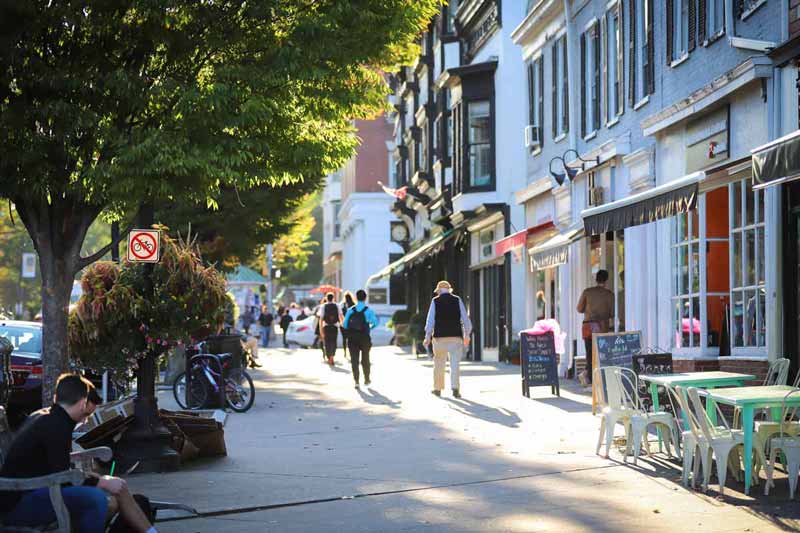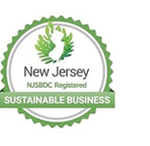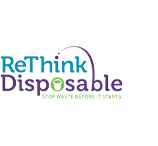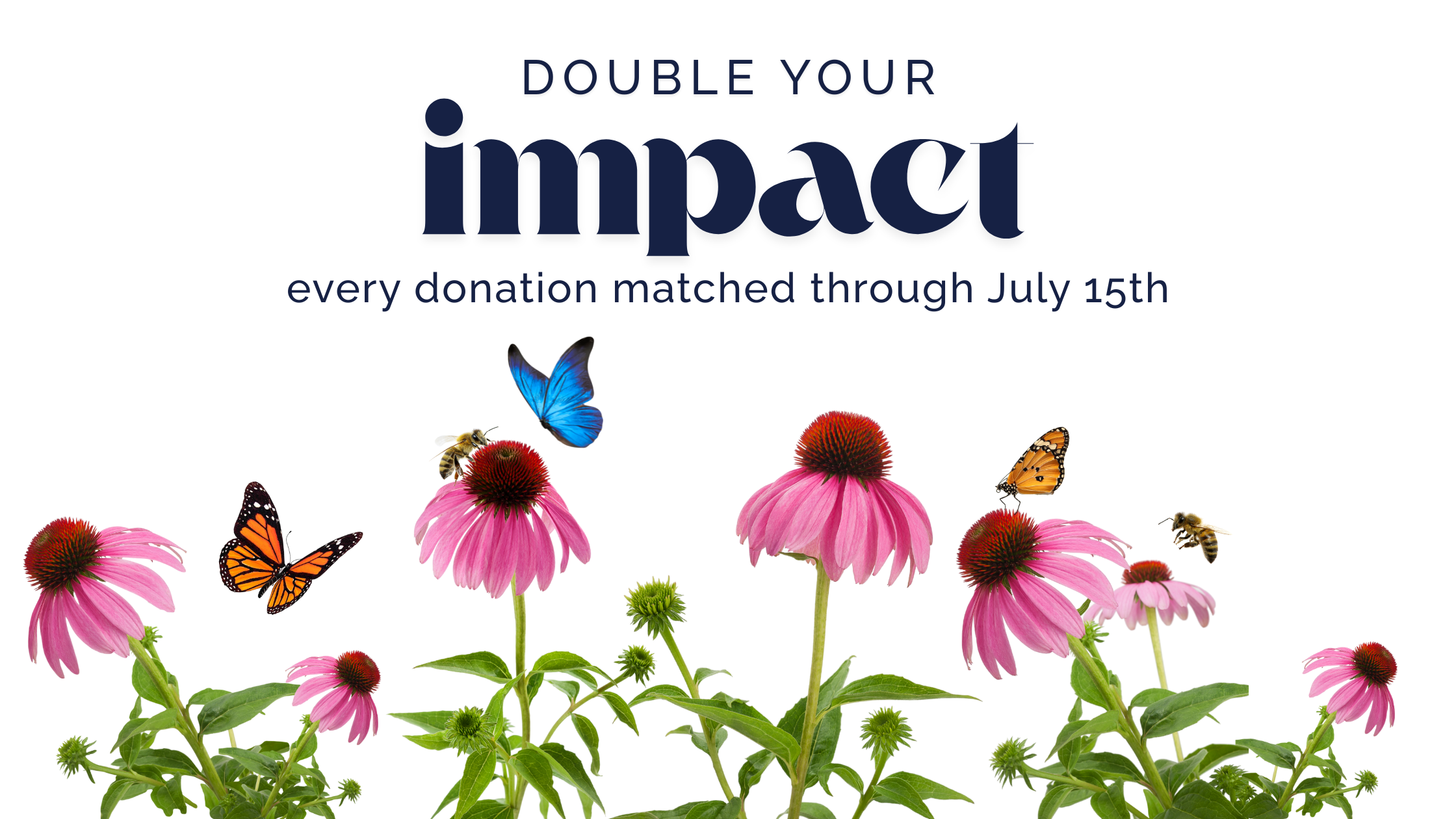Businesses and Nonprofits
Thank you for your interest. You’ve taken the first step toward action. There is a lot that businesses and nonprofits can do to create a more sustainable community.
Facilities and Operations.
It’s all about energy.
Get savings.
Financial incentives are available to improve energy efficiency. We’ve provided a basic overview. Feel free to reach out to us and we’ll connect you with the right contact for your business.
Small to medium-sized facilities.
The state-funded program, Direct Install, pays up to 70% of the project cost to replace lighting, HVAC, and other outdated operational equipment with energy-efficient alternatives. It seems too good to be true, but its not.
Larger facilities.
There is funding available for you too. The Customer Tailored Energy Efficiency Pilot Program offers a streamlined approach to energy-efficiency upgrade projects and incentives.
Renters.
Renters can initiate these programs too, but landlord consent is necessary before proceeding with any work on their property.
Are you a public entity?
The Local Government Energy Audit is free service tailored specifically for state colleges, universities, non-profit agencies, and select nonprofits. The resulting report details specific energy efficiency measures and incentives which can help pay for them.
Invest in renewable energy.
Learn how you can install solar or offset your energy use with renewable energy through a renewable electricity provider.
Measure your performance.
Benchmarking is a free service that compares your energy usage to similar buildings and offers customized improvement advice. This way you’ll know if your utility bills are too high.
Transportation.
Encourage biking.
Support commuters with covered bike parking or storage. A locker room lets commuters freshen up before work. Outlets allow e-bikes and e-scooters to recharge.
Consider a bike share.
Depending on your location, a bike-share program can reduce the need to drive to lunch or meetings.
Advertise alternative transportation.
Help your employees learn about bus and train options, as well as carpool, carshare, and rideshare opportunities.
Support electric vehicles.
Install EV charging. New Jersey’s It Pay$ to Plug In program provides grants to offset the cost of purchasing and installing charging stations.
Don’t guess.
Ask your employees what they will use. We are happy to provide a Lunch & Learn event to review the options and then distribute a survey to ascertain interest. Please contact us.
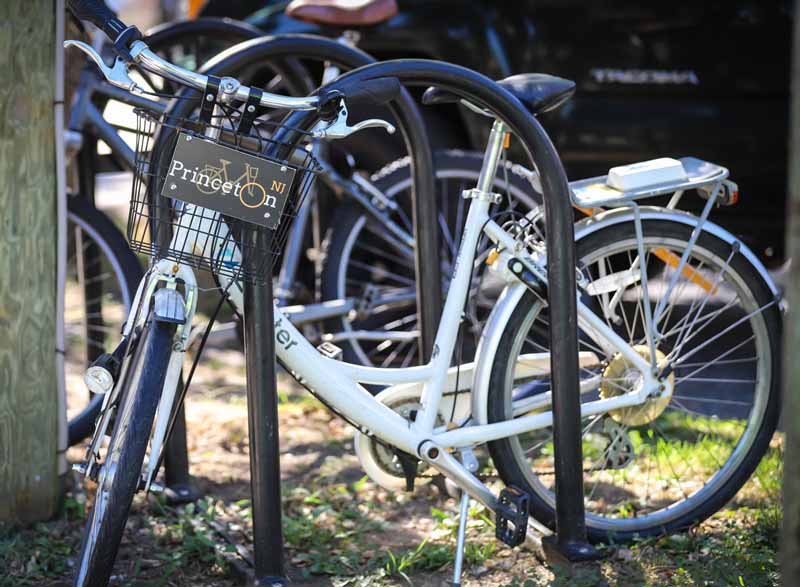
Purchasing.
Develop a green purchasing policy.
Purchasing sustainable options helps the environment — with significant savings for you. Review the NJDEP’s Green Purchasing Guide for more information.
Give up disposables.
Why pay for disposable cutlery, straws, and plates? Save money by switching to washable.
Encourage BYO behaviors.
Offer water refill stations and space for employees to rinse their bottles or mugs. This eliminates the need for plastic water bottles and disposable coffee cups. If you’re a food establishment, offer a discount for BYO mug, bottle or takeout container.
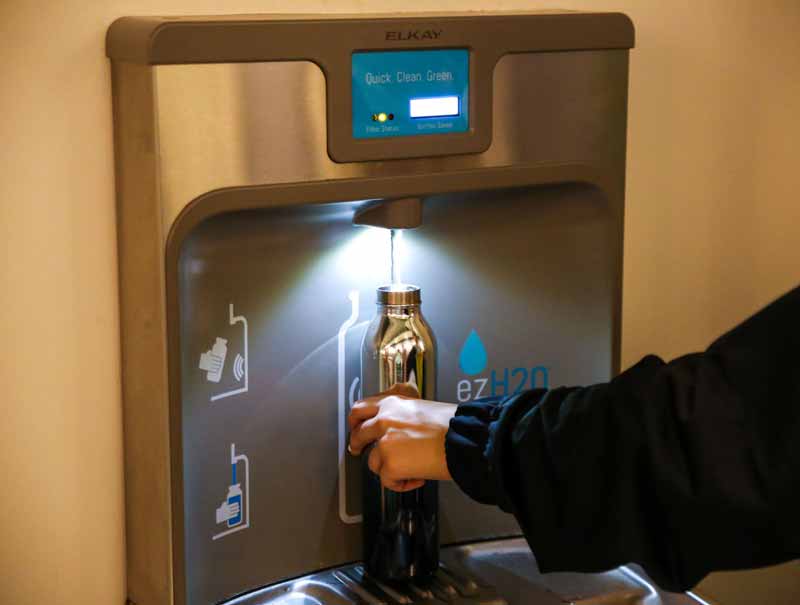
Waste.
We’re getting buried in trash. You can help.
To prevent contamination, ensure your recycling and/or compost bins are kept with a properly labeled trash can.
Recycle.
Offer recycling services — your patrons will appreciate it.
Sort properly.
Clear and consistent signage is vital — check out DIYsigns.
Reduce the cans.
No need to have a trash can at every desk. Keep them in a central location to encourage less waste, and make it easier on your cleaning crew.
Limited space?
Consider partnering with neighboring businesses to reduce collection containers and save money from hauling contracts.
Consider food waste.
Approximately 25% of what goes to our landfill is food waste. Restaurants, in particular, are well-poised to collect food waste in the kitchen. Need help? We’re here to help you figure this out.
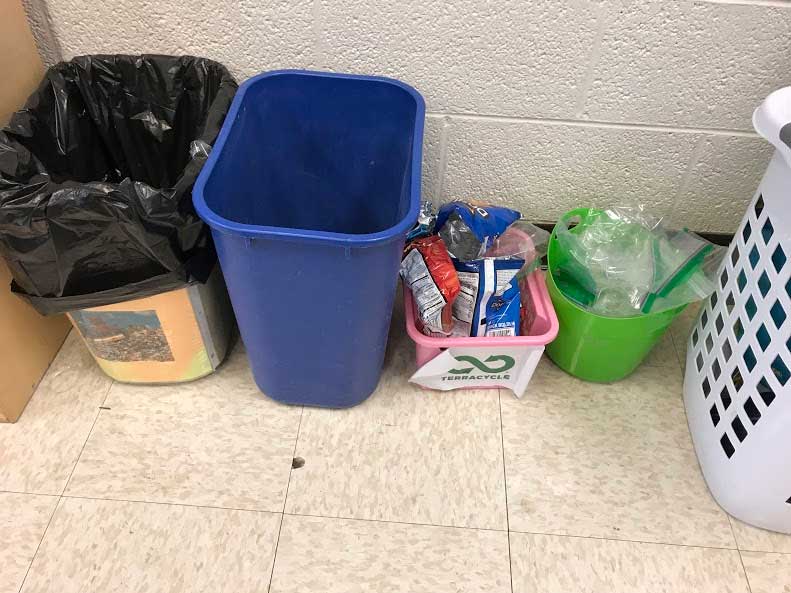
Landscaping.
Convert grass to a no-mow meadow.
Consider areas of your property that could be planted with meadow grasses. This will support pollinators and birds and, best of all, will save you money from mowing maintenance.
Introduce natives & remove invasives.
Plenty of native plant options are aesthetically appealing and support the local ecosystem.
Plant more trees.
Consider whether additional trees can be planted. They provide shade, soak up stormwater and are a carbon sink — just to name a few of the benefits.
Leave the leaves.
Have your landscaper mulch leaves back into your property. This nourishes your soil and can save on the cost of fertilizers.
Install green infrastructure.
Consider incorporating a rain garden or bioswales at the edges of parking lots and in other low areas. The more stormwater properties soak up, the less chance of water causing issues elsewhere.
Get rid of gas-powered lawn equipment.
If you don’t maintain your own property, seek out a landscaper that will use electric equipment and sustainable practices. Check out this list.
Looking for additional landscaping tips? Check our Yard guidance.

JOIN ONE OF THESE PROGRAMS TODAY
NJ Sustainable Business Registry
Customized for businesses, non-profits, and higher education institutions
QUICK FACTS:
DID YOU KNOW?
JOIN THE MOVEMENT.
Thirteen Princeton businesses and nonprofits are registered in the NJ Sustainable Business Registry. Three Princeton restaurants are registered in the Green Restaurant Association.
FOLLOW THE MUNICIPALITY’S LEAD.
Since 2017, the Municipality of Princeton has achieved silver-level certification by Sustainable Jersey.
PRINCETON'S CLIMATE ACTION PLAN
Climate change is here.
The Climate Action Plan provides a roadmap to reduce Princeton’s contribution to climate change and to prepare for its effects.
All hands on deck.
The plan requires the collective effort of the entire community — every neighborhood, business, and school — working together to ensure Princeton remains a prosperous and vibrant town for future generations.
Learn more.
The Princeton Climate Action Plan identifies multiple strategies to reduce our emissions from the goods and services we utilize.
